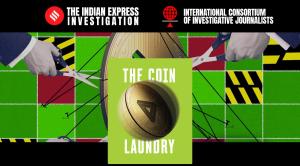I don’t know who killed Jessica Lall…
I do not know who killed Jessica Lall. The Judge who tried the case acquitted the accused after seven long years. He too does not know: whic...

I do not know who killed Jessica Lall. The Judge who tried the case acquitted the accused after seven long years. He too does not know: which does little credit to our system of criminal investigation, even less to our system of criminal justice. But most of all, it does no credit at all to public morality: witnesses to the incident turned hostile, and justice was the victim.
It is not often appreciated that public repute, and guilt in a Court of law, operate in different fields. Criminal charges sometimes stick, like flies to the honey-pot, on those who are reputedly corrupt. But the crafty amongst them have grown so adept that they often outsmart the system. They know how to “manipulate” the investigation, how to “manage” the evidence, so that criminal cases come unstuck—with the mysterious disappearance of witnesses, the retraction of statements previously given, and the like.
The proverbial Eleventh Commandment (“thou shall not be found out”), has wormed its way into criminal justice administration—and truth is now its biggest casualty.
The main problem is that there is little room for a proactive trial judge to make all manner of procedural orders for ascertaining the truth. The tools are there but they are seldom used. Section 311 of the Criminal Procedure Code 1973 provides that any Court may at any stage of enquiry, trial or other proceedings summon any person as a witness, examine any person present though not summoned as witness, recall and re-examine any person already examined. But Section 311 of 1973 Code remains a dead letter.
In practice, rarely does the trial Magistrate or the Sessions Judge ever summon on his own a material witness in a criminal case. He or she sits like an Umpire in a cricket match—leaving it to the contesting parties to fight it out: if the prosecution fails to call essential witnesses, the accused is acquitted. And this is what the Judge did in the Jessica Lal case.
Hence the importance of the recommendation in the Malimath Committee Report of March 2003 that the quest for truth should be made the fundamental duty of Courts in India; the Court must not only be empowered but obligated to summon any person or recall or re-examine on its own initiative any person already examined. This recommendation of the Malimath Committee has not yet been translated into law—if it did it would make recourse to Section 311 obligatory.
The Criminal Law Amendment Bill, 2003, was introduced in the Rajya Sabha in August 2003 to implement measures designed to prevent the evil of witnesses turning hostile (that’s what happened in the Jessica Lal case). Section 344A was recommended: summary procedure for trial of witnesses deposing contrary to statements recorded under Section 164A by the Magistrate.
But this provision was not passed by Parliament: It was omitted from the final Act only because a Select Committee of Parliament decided to “drop” these provisions: in my view a most unfortunate decision: all members of this Committee must be made to read the judgment in the Jessica Lall Murder Case. When they do, I hope they don’t get sleep at night!
RELATAD STORY





- 01
- 02
- 03
- 04
- 05


























